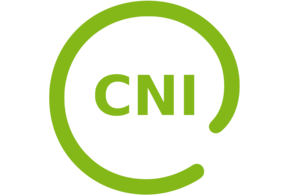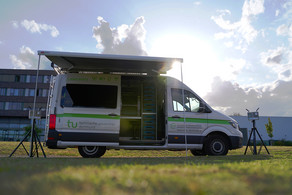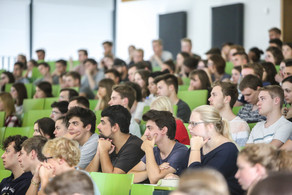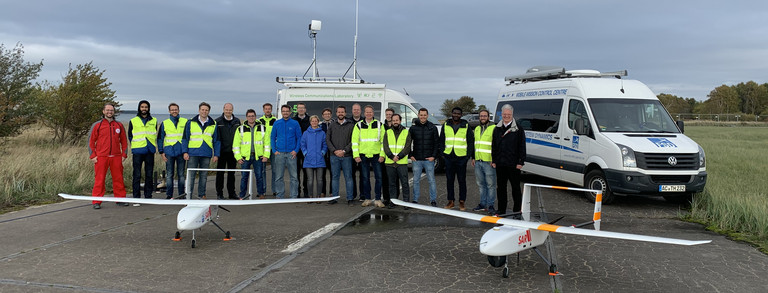TU Dortmund gathers an international body of experts in a “Testival” for power refueling
- News
Japan and South Korea fly in electric vehicle prototypes
Each vehicle shall be able to refuel at any charging station regardless of the manufacturer – whether direct- or alternating current, whether speed- or steady charger. This is a requirement in the course of the implementation of electro mobility, convincing drivers to buy electric vehicles. The chair of communication networks under the supervision of Prof. Christian Wietfeld conducted research on smart interoperable power refueling and therefore has invited to the “Conformance & Interoperability Testival”. In doing so the experts were brought up to date to what extent the introduction of an international charging standard has advanced.
The “Erlkönig” from Korea is covered in protective foil, even the small emblem on the hub cap showing the company’s logo is covered and a black mat is laid over the dashboard – car manufacturer Hyundai protects their newest electric vehicle prototype from glances of the competition. Nevertheless Hyundai loaded the vehicle on a fright plane and flew it to Germany, to test electronic charging devices next to local automotive manufacturers BMW, Porsche and Volkswagen at the international Testival conference by TU Dortmund. Japan's Honda and Toyota sent two electric vehicles being at pre completion state as well.
The car manufacturers know, that electric vehicles will only reach a considerable circle of buyers, if power refueling is possible anywhere and without complications. Next to electronical and mechanical challenges to the charging plug, communication technological controlling aspects of the charger interface are essential. In undergoing international standardization a complex communication protocol for charging control was developed by now: various application scenarios such as speed charging, exclusive usage of renewable energy and self-made energy, roaming both nationally and internationally, inductive charging as well as charging of electric busses shall be supported. For the first time this standard is currently implemented in electric vehicles around the world, whereby it is greatly anticipated if the systems work together properly.
After the experts had met in the USA and Japan a two day endurance test was run at the TU Dortmund. The event took place within the international standardization of communication controls for the intelligent electric vehicles charging interface (Combined Charging System, CCS) according to ISO/IEC 15118 respectively DIN 70121. The chair for communication networks of TU Dortmund leads the ISO/IEC sub-working group defining “Conformance Tests” and contributes scientifically secured testing- and evaluation methods.
The so called “Testival”-event is an innovative format in which all implementations and testing systems of participating organizations are introduced and interactively tested. In Dortmund, up to 45 international company’s and research institutes with roughly 100 specialists applied. With South Korea, Japan, Taiwan, USA, France, Denmark, Switzerland and Germany counting eight nations which took part in the event. Among Audi, BMW, Ford, Honda, Hyundai, Porsche, Toyota, VW, RWE, Siemens, a range of several local automotive-suppliers were on site. They brought numerous controlling devices, charging interfaces as well as six different electric vehicles for the two day testing at TU Dortmund. On the one hand the event's test results underlined the feasibility, on the other hand the necessity of close communication and testing among all participants of the branch.
The active participation of the chair for communication technology is based on research results funded by the stately (NRW EFRE) supported research project “TIE-IN”, as well as the federal funded (BMWi) research project “eNterop” and took place at the EFRE funded center of competence for electro mobility, infra structure & networks with scientific support from the Institut für Energiesysteme, Energieeffizient und Energiewirtschaft (IE3).





